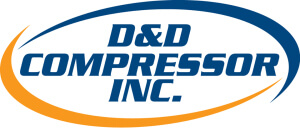Contact and Non-Contact Compressors for the Food Industry

Compressed air is highly regulated within the U.S. food industry. Regardless of how compressed air is used to support a particular food processing operation, the air must be purified of contaminants (water vapor, solid particulates, oil aerosols, and vapors) before reaching the end-use. However, there are different sanitary requirements depending on the type of air compressor system used within the food industry. Here is a look at the three types of air compressors used in the food industry and the purification requirements and recommendations for each.
Contact
A compressed air system is considered “Contact” if it is used as a part of the direct production and/or processing of consumable food products, including packaging. For Contact Systems, the U.K. Code of Practice for Food Grade Air recommends a -40°F pressure dew point to ensure that no microorganisms can grow. These systems also require coalescing filters to remove solid particulates and oil vapors.
Non-Contact (Low Risk)
Most food production facilities have a significant portion of compressed air going to “plant air” applications, or those end use applications that have no contact with food products or food-packaging machinery. In Non-Contact Low-Risk systems, the U.K. Code of Practice recommends a 37°F pressure dew point, which can be accomplished with refrigerated compressed air dryers for centralized air treatment systems.
Non-Contact (High Risk)
In High-Risk compressed air systems, compressed air is more closely used near food products and/or food-packaging machinery. Without proper air treatment, it is possible that oil, moisture, bacteria, and other particulates from these Non-Contact High-Risk systems can end up on consumable food products. The U.K. Code of Practice recommends that such compressed air systems establish the same compressed air purity specifications as “Contact” systems.
If you require an industrial air compressor for a food or beverage facility, work with a commercial air compressor supplier in San Jose to ensure your system adheres to sanitation requirements and does not threaten the products you sell.
